May 19, 2025 | 01:37 GMT +7
May 19, 2025 | 01:37 GMT +7
Hotline: 0913.378.918
May 19, 2025 | 01:37 GMT +7
Hotline: 0913.378.918
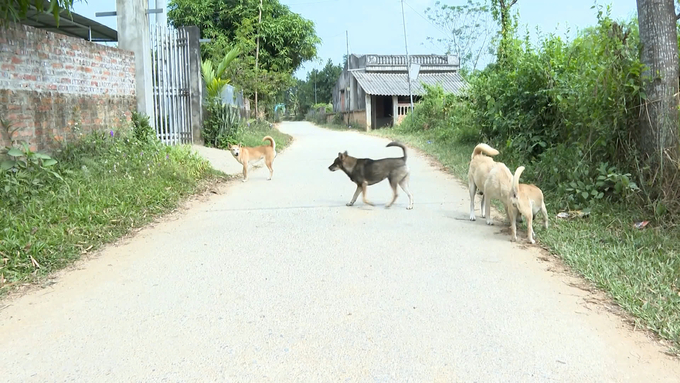
Dogs are still roaming freely on the roads of Bac Kan’s countryside, posing a risk of disease spreading. Photo: Ngoc Tu.
During the last days of October 2024, the people of Na Leng village (Quan Ha commune, Bach Thong district, Bac Kan province) were dismayed when a rabid dog bit many people in the village. Like any other day, on the morning of October 25, Ha Thi Hue was walking on the village road to go to work when suddenly a dog rushed out and immediately bit her leg. In just a short period of time, this dog bit 7 people more, causing injuries.
"The situation happened so suddenly that I didn't have time to evade. I was just passing by and it jumped out and bit me right away. When I got home, I washed with soap and then went to get a vaccine injection right away," said Hue.
Suspecting that the dog had rabies, the residents reported it to the authorities and the health sector. Test results showed that the sample was positive for rabies. Immediately afterward, all those bitten by the dog were vaccinated and given anti-rabies serum.
According to Hoang Thi Ha, Director of Bach Thong District Medical Center, the unit has sent staff to conduct investigations and advise people to get anti-rabies serum and rabies vaccine. Up to now, the health conditions of those bitten by rabid dogs in Na Leng village have stabilized.
On October 29, the People's Committee of Bach Thong district announced outbreaks of rabies in Na Leng village and Thai Binh village (Quan Ha commune). The district’s leaders requested the locality to immediately discard dogs and cats infected with rabies or suspected of being infected with rabies, and healthy dogs and cats that have not been vaccinated against rabies but are kept in the same cage with dogs and cats infected with rabies or suspected of being infected with rabies.
During the epidemic, people must absolutely not slaughter, trade, or transport dogs and cats in or out of the epidemic area. The People's Committee of Bach Thong district also requires people in the epidemic area to confine dogs and cats for 21 days for monitoring.
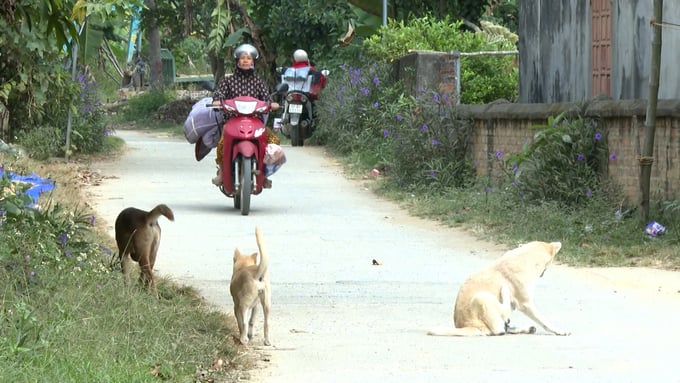
In the midst of the epidemic in Quan Ha commune (Bach Thong district), dogs are still running freely on village roads. Photo: Ngoc Tu.
In early November 2024, although it had not been 21 days since the epidemic in Quan Ha commune was announced, people still let their dogs and cats roam freely. Many dogs without muzzles were still leisurely running around on the village roads, and people were still moving around as if there was no precedent for human casualties due to the rabies outbreak.
Ha Van Thiem, Vice Chairman of the People's Committee of Quan Ha Commune (Bach Thong District), said, “In the two villages with the epidemic, the commune has advised households not to put down their guard while dispatching veterinary teams to vaccinate all dogs. The local veterinary staff is currently working tirelessly to perform vaccination even in neighboring villages. Despite the efforts, the situation of people letting their dogs and cats roam free still occurs, making it very difficult to control”.
Bac Kan province has previously recorded people bitten by rabid dogs and then died without treatment. Rabies in dogs has had unpredictable movements in recent years. In 2023, the whole province had eight rabies outbreaks in dogs in seven communes under Cho Don, Bach Thong and Ngan Son districts.
As for this year, Bac Kan People's Committee has requested districts, cities and specialized agencies to vaccinate dogs and cats against rabies, ensuring a vaccination rate of over 70% of the total herd. Local authorities are strengthening information dissemination in many forms, mostly through the grassroots-level radio system. The goal is to raise people’s awareness about the dangerous nature of rabies to human life. The provincial People's Committee also instructs people to strictly comply with the provisions of the law in raising and managing dogs, cats and other animals at risk of rabies.
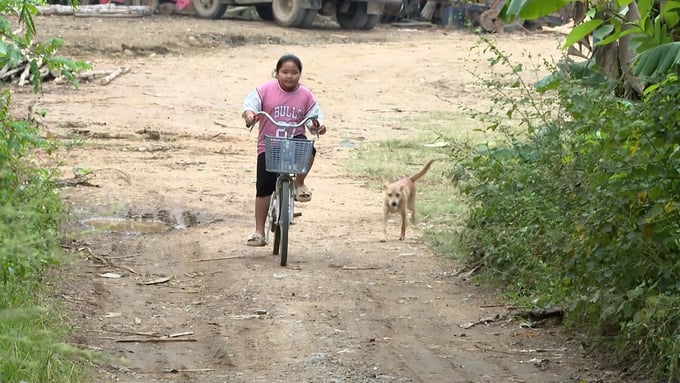
Many people are still staying negligent and do not vaccinate their dogs against rabies. Photo: Ngoc Tu.
Since the beginning of 2024, Bac Kan province has had six outbreaks of rabies in dogs in Ban Thi and Dai Sao communes (Cho Don district), Duc Van commune, Van Tung town (Ngan Son district), Don Phong commune, and Quan Ha commune (Bach Thong district). Up to the present time, five communes have declared the end of the epidemic, one commune has not passed the 21-day isolation period without detecting new cases of rabies.
Translated by Samuel Pham

(VAN) Deputy Minister Nguyen Quoc Tri also expressed his hope that Cuba will soon overcome its current challenges, attain food security, and further expand cooperation with Vietnam.

(VAN) The project contributes to enhancing the resilience of communities vulnerable to the impacts of climate change, with a primary focus on local women.
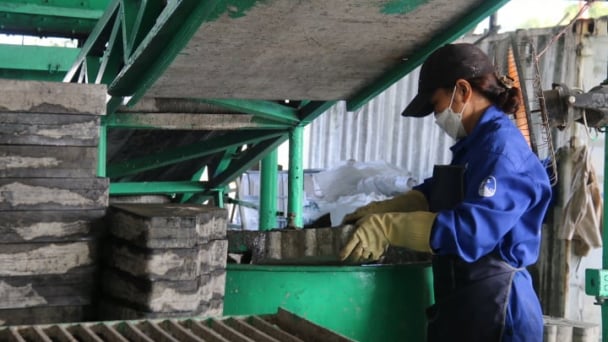
(VAN) Green materials help save energy and resources. However, after more than 10 years, Vietnam has only developed over 200 green buildings with more than 6 million square meters of floor space.

(VAN) Vietnam - Thailand Business Forum 2025: One plus one on three connects, marking a milestone in the comprehensive strategic partnership between the two nations.
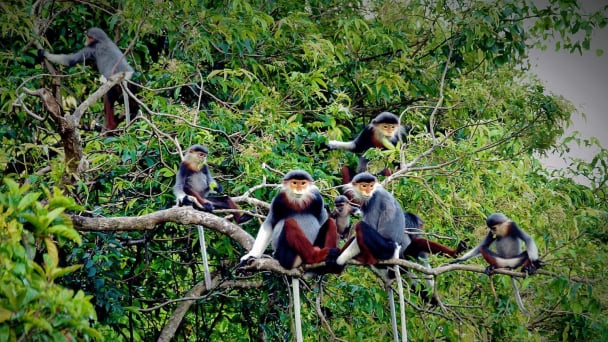
(VAN) The United Nations designated 22 May as the International Day for Biodiversity 2025 with the theme 'Harmony with nature and sustainable development.'
![Multi-channel, multi-directional Vietnamese agricultural markets: [8] A national strategy is needed](https://t.ex-cdn.com/nongnghiepmoitruong.vn/608w/files/phucpm/2025/05/15/1435-thi-truong-nong-san-viet-da-kenh-da-huongbai-8-can-mot-chien-luoc-quoc-gia-084750_728.jpg)
(VAN) The Chairman of Hung Nhon Group shared: ‘Opening up and tapping into new markets is the right and strategic direction for Vietnam's agricultural sector.’

(VAN) Food waste has become a serious issue in modern society, especially in rapidly urbanizing and developing cities like Hanoi.